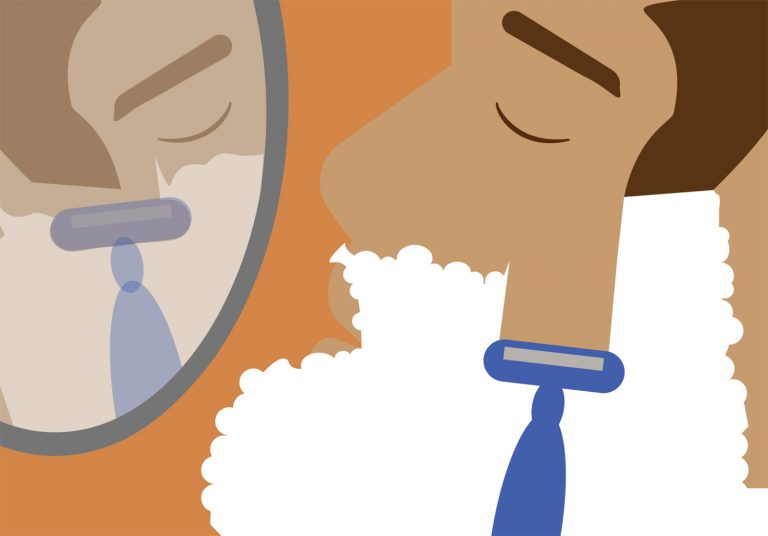David Beckham admitted to Into the Gloss that there was a time when he resorted to stealing his wife’s products due to a lack of male-targeted options. This will no longer be necessary because of the wide array of men’s beauty products that are hitting the market; a trend that shows no signs of slowing down. According to a 2017 study, the men’s grooming industry, once worth 15.68 billion in 2012, will almost double to 29.14 billion by 2024.
The budding sector of men’s self-care is very different than the looks displayed by popular male youtube makeup artists, such as Jeffree Star and Manny Gutierrez. These brands take a more natural approach by proposing daily skincare routines and undetectable makeup.
Harry’s, for instance, is not your typical shaving company. They have redesigned and rebranded the shaving category by taking a page from the female product book. What could have been another dull and boring men’s brand turned into a sleek design, with relatable products, and a distinct company voice. When was the last time you saw a shaving company advertise that the products were paraben and sulfate free? A marketing tactic much more likely to be associated with curly hair shampoo than men’s grooming.
It seems to be working since Harry’s has raised $112 million dollars to expand their efforts. This includes new ventures into men’s skincare, which they refer to as face care. The face care regimen is four easy steps: cleanse, moisturize, balm and mist. Avoiding the lingo typically associated with the female beauty industry, the cleanser is labeled simply as face wash, the moisturizer referred to as face lotion and the balm branded for post-shave use.
However, many “female” skin care companies offer options for men including long-standing brands Clinique and Kiehl’s. Clinique launched their men’s line over 40 years ago in 1976. Nonetheless, these lines have failed to be acknowledged on the same level of newer brand launches. Maybe it’s the fact that these “for men” subdivisions of female-oriented brands, saw men as an afterthought, secondary to their lines catering to women. In addition, they severely lack the promotion of the female lines, rarely being featured in a commercial or plastered on a billboard.
Beyond men’s skincare, Chanel arrived on the scene with their new makeup line entitled Boy De Chanel. Given that men are taking more pride in their appearance than ever before, it was the perfect time for the iconic brand to launch a range featuring three distinct products. The Boy De Chanel foundation, eyebrow pencil and lip balm are made to enhance a man’s face, not look like he’s actually wearing any makeup.
After his aforementioned experiences, David Beckham launched his own brand as a response to his own problem. House 99 covers every inch of your body from head to toe with products for hair, face, grooming and body care. The products include rich ingredients like spirulina and quinoa, which are long-time favorites of Beckham’s, and support the hair and beard while smoothing and illuminating the skin.
A standout product from the line is the specialty lotion to care for your tattoos. The appropriately titled, Bold Statement, is a cream that moisturizes to brighten tattoos and contains SPF 50 to protect the ink from sun damage. However, House 99, is about more than well-groomed men. The House is symbolic of building a community that is not ashamed of their grooming habits and owns them.
Men are redefining what beauty and grooming mean for them. Short and simple, the brands avoid the lengthy ten-step Korean skincare regimen of women, with their double cleanse, toner and serum. No more than three to four products per category, that are easy to apply, easy to understand, with noticeable results, because why should good skin only be available to women?
Words by Hannah Harris
Visual by Hannah Harris

